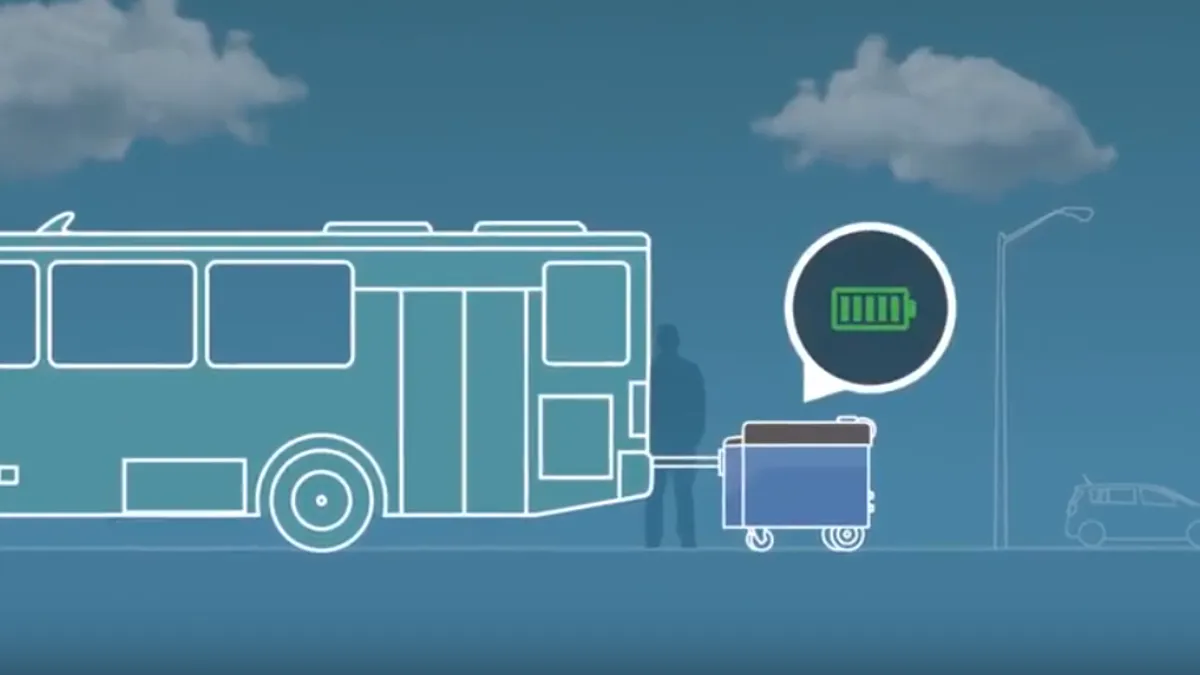Dive Brief:
- Sprint announced it is working on Mobi, a self-driving charging unit for electric vehicles (EVs) that can autonomously drive to vehicles when needed. Testing will begin in New York City at the beginning of 2019.
- The robots would rely on Sprint’s 5G network and advanced internet of things (IoT) technology for a micro-positioning navigation system, which the company says is more accurate than GPS.
- Mobi would charge with solar power and store power on lithium ion batteries to reduce their climate impact.
Dive Insight:
New York City has a goal of electrifying 20% of its vehicle fleet by 2025, part of its overall effort to meet the goals of the United Nations’ Paris climate change agreement. Sprint says the Mobi project can advance that goal by removing one of the major barriers to electric vehicle use: charging. Rather than having cars, buses or other vehicles backed up at individual chargers, the robot would be able to circulate around parking lots and charge vehicles as needed. And while the state has invested in EV chargers, allowing more vehicles to juice up without relying on installation of chargers would help speed up the growth of EV purchases.
"The current reality of vehicles taking turns at electric charging stations is just not efficient and slows the real-world adoption of EVs," said Ivo Rook, Sprint’s senior vice president for IoT, in a statement. "We believe that this is the ultimate solution for a cleaner, healthier New York City."
Getting the robots from the testing stage to reality depends on a confluence of new technologies: 5G networks, IoT technology installation, connected vehicles, autonomous vehicle technology and fast charging. New York City is one of Sprint’s early markets for the 5G rollout, which will begin in the first half of 2019, but the network will need to be up to fully utilize Mobi’s positioning and vehicle finding (the micro-positioning system will also help the robots avoid obstacles and ensure safety).















